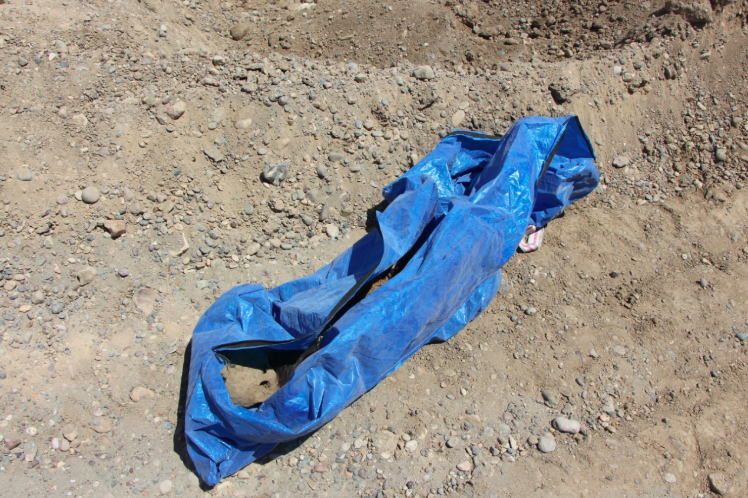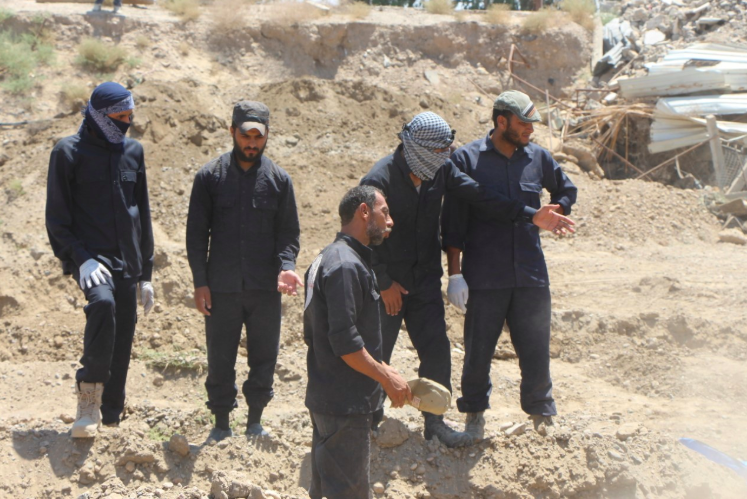Exclusive photos: A look at the ongoing attempt to unearth Raqqa's mass graves
- MECRA

- Jul 31, 2018
- 2 min read
Updated: Aug 1, 2018
On his recent trip to Raqqa in eastern Syria Jonathan Spyer came across men delegated by the Raqqa Civil Council to help excavate and document the mass graves that have been found around the city.
Spyer writes: "Nine months on from its liberation, Raqqa is still far from returning to normal. The pace of reconstruction has been slow, with international commitment less than the authorities had hoped for. Consequently, visible damage from the battle and from coalition airstrikes is still to be seen across the city. The security situation remains volatile, with both IS sleeper cells and regime networks active in the city. The latter are attempting to foment political unrest. A 10 day curfew was recently declared on the city, which the authorities say has gone some way toward rooting out the remaining IS presence in Raqqa, but concerns remain."
The Initial Response Team was established during the offensive to liberate Raqqa from ISIS in 2017. It has grown to 40 members. At least five mass graves were initially found, one near the zoo, two near cemeteries and one near the old court. More than 1,100 corpses were found by early July. Mass graves have also been found near a playground next to the hospital where 553 bodies were documented in April.

Jonathan Spyer documented the work during late July. Numerous corpses wrapped in blue tarps were removed from an area with the help of an excavator. The corpses include the remains of men, women and children. Many appear to have been buried years ago. ISIS occupied Raqqa from 2014 to 2017.
The team of ten work in the heat throughout the day. They have standardized uniforms with logos on the back and treat the corpses with respect as they remove them one by one. The system of documenting them and the atrocities ISIS carried out continues. Identifying who the corpses are, whether civilians, victims of ISIS, families of ISIS members or ISIS members themselves, also continues. A full report will follow










Comments